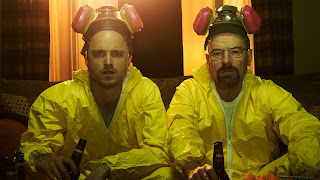Then a few years ago I read a book "Stop Setting Goals" by Bob Biehl. His approach is to solve problems, not set goals. He says eighty percent of the people around us dislike setting goals, and if given the choice they would stop doing it. He gives us permission to stop goal-setting and not feel like we are "second class citizens."
One major problem with setting goals is that most people won't do it. They don't believe it works and have been disappointed with their attempts in the past, so just give up. You say "set some goals" and they roll their eyes. "Been there and done that." Then they feel like something is wrong with them, like they are subhuman. If you ask one hundred people to set a goal, eighty of them will ignore you.
Biehl breaks down the statistics this way, when you ask a team or an individual to set a goal:
- 80% won't do it, have tried it in the past, failed, and won't try it again
- 15% will do it, they love setting goals and like hitting preset targets
- 5% won't care one way or the other, they are opportunity-seekers and rely on instinct and will never set a goal no matter how hard you try to convince them to do so
Another approach I recently came across about setting goals involves fighting the "culture-scape" that says goals are somehow magical and necessary in order for you to get somewhere. How can we get anything done without setting a goal? That is a "culturally-induced" question, supported by Western consumerism and capitalism. To fight the culture of goal setting we have to change our thinking.
Ask yourself these three questions, to change your mindset when considering goals:
- "What do I want to experience" in my life?
- "How do I have to grow" in order to experience this?
- "What can I give back" to my community and fellow human beings?
Asking these questions will help us focus on the things that are important, crucial to becoming who we want to be. Instead of setting a goal, you ask "what do I want to experience?" This is an "end", not a "means." It is a result you desire, not a step you must take. Instead of saying "I want to lose 50 pounds", you say "I want to be healthy, and live a long and productive life." Then you consider how you can experience this in your life. How must I grow, what must I learn, who must I seek out to help me? And most importantly, you want to help others, too. How can I give back and serve others who also need help? A goal of losing 50 pounds is a "means" to an end. An approach that focuses on the "end", not the "means", is more motivating for some people and allows them to de-emphasize the importance of setting "means-type" goals.
If I were to take both of these approaches, Biehl's problem-solving approach and the experience-based approach, and mix them up like a tossed salad, how would that help me accomplish things without setting goals? I'm not sure. It's something to consider.










